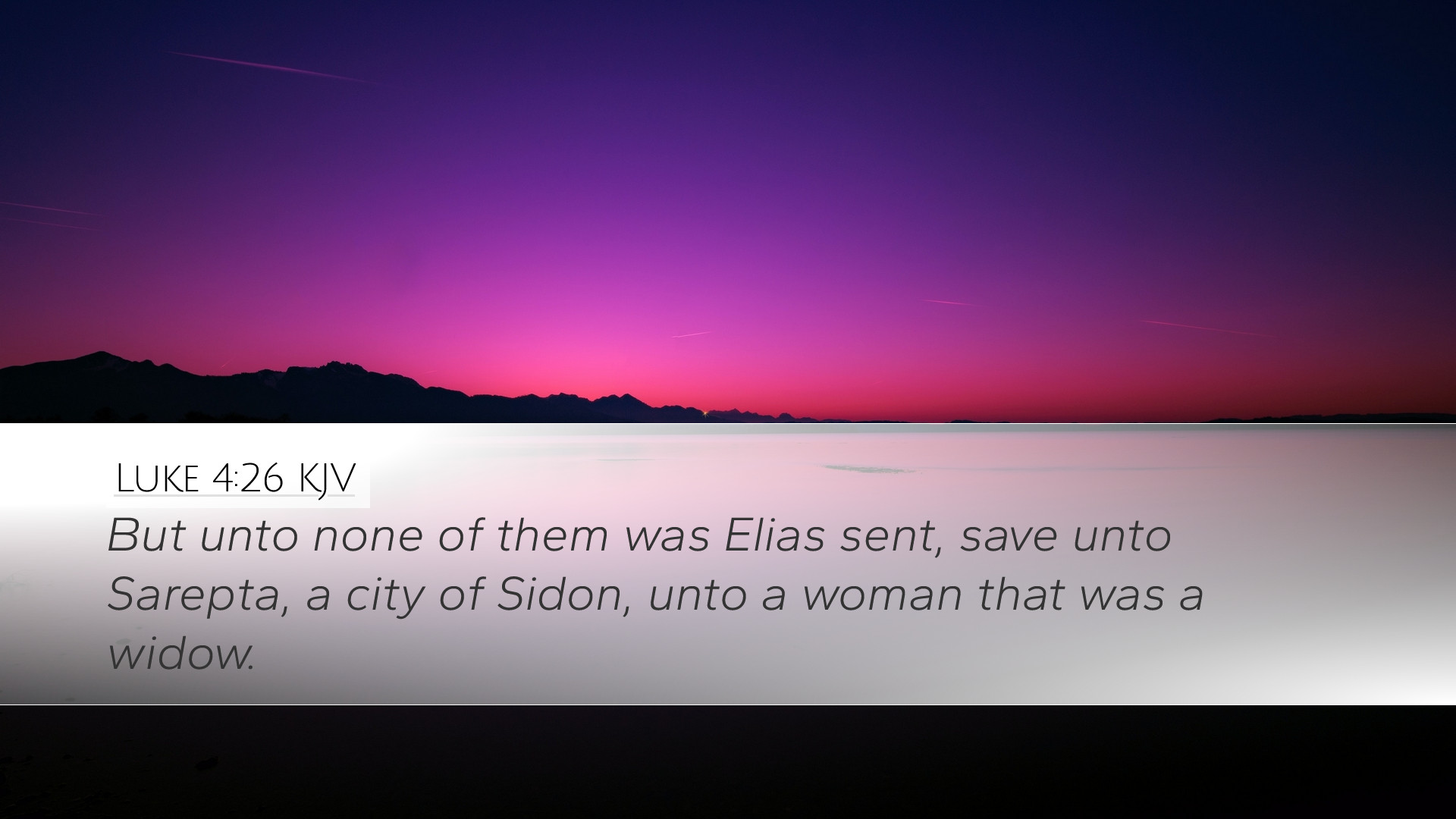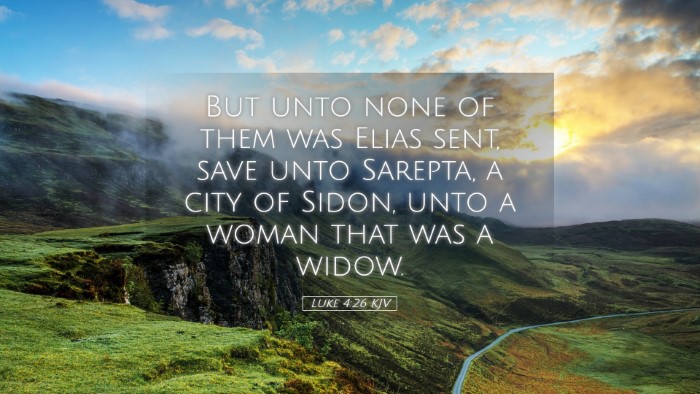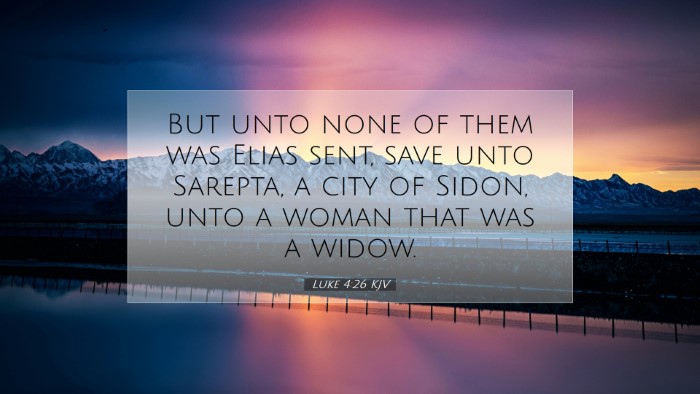Commentary on Luke 4:26
Luke 4:26 states: "But unto none of them was Elias sent, save unto Sarepta, a city of Sidon, unto a woman that was a widow."
This verse is significant not only for its historical context but also for the theological truths it reveals about God’s grace and the mission of Jesus Christ. The commentary on this verse by various scholars sheds light on its implications for understanding the nature of God's relationships with humanity.
Contextual Understanding
Before delving into the specifics of this verse, it’s important to note its context within Scripture. Jesus, in the synagogue at Nazareth, is addressing His fellow townspeople who were skeptical of His messianic claims. He cites the example of the prophet Elijah, underscoring that Elijah was sent to an outsider—a widow in Sidon—rather than to the many Israelites in need.
Theological Implications
Divine Sovereignty
This passage illustrates the sovereignty of God in His choices of whom to bless and when. As Matthew Henry points out, God’s grace is not confined to the Israelites alone; rather, He extends mercy beyond the covenant community to those who may seem less deserving. This invites a broader understanding of God’s intentions for salvation—signifying that His love is available to all, irrespective of ethnicity or background.
Prophetic Ministry of Elijah
The reference to Elijah, as highlighted by Albert Barnes, serves to validate the prophetic ministry. The widow of Sarepta, a Gentile, is underscored to exemplify that faith is not restricted to Israel. In this, we are reminded that God's providence often transcends human expectation and societal boundaries, illustrating a divine narrative that is fundamentally inclusive.
The Role of Faith
The account of the widow shows that faith is a critical component of divine provision. Adam Clarke notes that her trust in God's provision enabled her to receive the miracle of sustaining food during a time of drought. It exemplifies how faith is not merely an inward belief but an actionable trust in God’s provision in dire circumstances.
The Widow of Sarepta
The widow represents a figure of vulnerability and need. Jesus highlighting her in this narrative signifies that, in the divine economy, the humble and needy are of paramount importance. This attachment to a widow, someone often marginalized in society, emphasizes God's penchant for lifting up the downtrodden. Matthew Henry stresses that God’s choice of a widow is intentional; implying that the blessings of God often flow to those considered least likely to receive them.
Contrast with Israel
The mention that Elijah was sent unto none of the many widows in Israel serves as a poignant contrast. The Israelites, despite their covenantal privilege, are depicted as lacking the faith that characterized the widow of Sarepta. Albert Barnes elucidates this point by stressing that privilege is not enough; one must also respond to God's word with faith and trust. This sharp distinction serves as a rebuke to the unbelieving crowd in Nazareth, challenging them to recognize their own spiritual blindness.
Implications for Today
For today's church and believers, this verse offers profound insights. The Lord's outreach to outsiders includes an implicit challenge to modern believers to look beyond their immediate communities. Adam Clarke notes that the church’s mission mirrors this divine principle; it must be inclusive and share God’s grace universally, regardless of social status or background.
Faith Over Heritage
The narrative underlines that God’s favor is accessible to those who believe. In a world where claims to righteousness are often based on heritage or religious identity, this verse challenges the church to reassess who is in or out in terms of fellowship with God. Matthew Henry encourages believers to cultivate humility and the spirit of inclusiveness as they seek to embody the gospel’s call.
A Call to Responsive Faith
Finally, this passage warns against the dangers of complacency and the false assumption that privilege guarantees divine favor. Albert Barnes draws attention to the necessity of active faith that acknowledges God's hand in our lives. The widow’s story illustrates that in times of need, God’s provision can materialize in unexpected ways and often through unlikely recipients.
Conclusion
Luke 4:26 serves not just as a historical reference but as a theological anchor that provokes deep reflection on the nature of God's grace and the human response to it. Faith, humility, and an openness to God’s broader plans are crucial takeaways from this powerful verse. For pastors, students, and theologians alike, it challenges believers to embrace a responsive faith that transcends cultural barriers and societal expectations.


